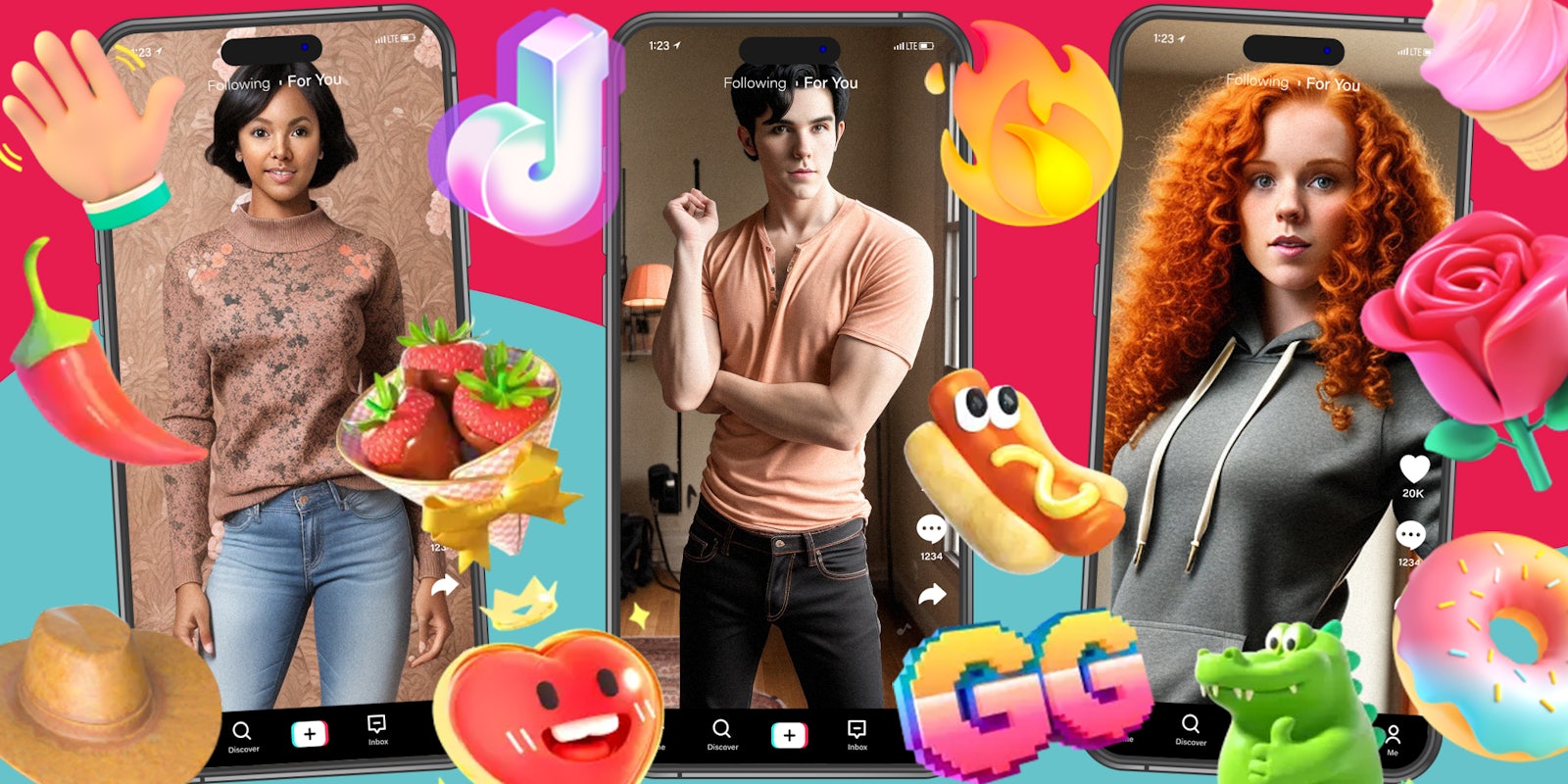Tassi Tyne, a 32-year-old South African yoga instructor and single mother, started live streaming in late July. Just three weeks later, she had doubled her TikTok following and quit her day job as a digital marketer.
Tyne is one of the thousands of TikTok creators who have jumped on the NPC live stream trend in which they perform different bits according to viewers’ paid gifts on the app.
In July, TikTok creators posted 47,000 videos using the #NPC tag, gathering a total of 835 million views according to the BBC.
Popularized by viral user Pinkydoll, who is known for using repetitive catchphrases like “ice cream so good” or “gang gang” in her live streams, the trend calls for creators to act like computer-generated non-playable video game characters.
In gaming, the characters’ actions are programmed to a limited extent, making them inactive unless interacted with.
On live streams, creators react to audience gifts by acting out repetitive actions and phrases related to the gift they receive in a robotic, monotone manner mimicking computer-generated animated characters. Users can buy creators gifts using TikTok e-coins valued at about 1.4 cents each in USD.
Popular gifts include roses, ice cream cones, and TikTok logos, which cost one TikTok coin. Gifts range up to more expensive virtual tokens, like a TikTok universe or a lion, valued at $300 and $400 respectively.
During the first week’s live streaming, Tyne would stream for over four hours at a time, making less than $100 by the end of it. Today, her live streams average anywhere between $70 and $180 an hour, she told the Daily Dot.
Rather than coming up with her own catchphrases or mannerisms, she recreates the tried-and-true formula created by Pinkydoll and other creators.
“I’m not a trendsetter—I am a follower,” she said.
Her most recent live streams only last about an hour each day, which she works into her schedule during her children’s school hours.
“I’ve always struggled financially, having [ADHD] and being a single mom of two kids,” she told the Daily Dot. “Now I don’t have to worry. I mean, it’s been three weeks of zero financial stress.”
Tyne is focused on building a stable following rather than earning more during longer live streams. She hopes that building an audience will help her successfully pivot to other types of content once the NPC trend dies down, which she believes it will.
“People are going to become used to the fact that this is a thing. And people are going to get tired of being mad and angry about it,” she said. “They’re going to move on or another trend is going to come along that’s even more ridiculous, and they’re gonna get mad about that.”
A lot of the criticism she has faced is directed at the viral content trend rather than her execution of it, with users commenting that they find the creators’ behavior bizarre and off-putting.
“You’ve never had it in the world where people sit in and behave like robots while people throw money at them,” she said. “It is bizarre.”
Comments on Tyne’s live streams often try to shame her for acting out gifts following the NPC trend, bringing her children into the conversation and harassing her.
But at home, she has open conversations with her children about the TikTok content she makes—and she doesn’t filter out mean comments since they help her engagement.
“Adults have decided that licking imaginary ice cream is this sexual thing,” she said. “Most people just think it’s embarrassing.”
She knows that for some people, watching and participating in NPC live streams comes from a sexual fetish of trying to feel control over creators’ actions through sending gifts, but she doesn’t feel that way herself.
“I’m not trying to turn anyone on [during live streams],” she said. “I don’t feel sexy.”
Despite the haters, Tyne has also found lots of supporters and fellow creators on the app.
Tyne believes some of the support she and other creators get comes from people supporting female autonomy in online spaces.
Some viewers see the hate NPC creators get and take it upon themselves to “defend the bullied,” Tyne said.
“A lot of women have become protective over the fact that women should be allowed to make money in whichever way they want without judgment,” Tyne said.
Tyne has an OnlyFans account where she also creates content.
In an effort to keep her audiences separate, Tyne doesn’t promote her OnlyFans on her TikTok page, which has younger audiences that wouldn’t be suited for the adult content she posts on OnlyFans.
Men have also joined in on the NPC trend, often finding more unexpected bits to monetize.
Nickolas Currenton, a 32-year-old California-based content creator, jumped on the NPC train about a month ago.
Instead of just reacting to gifts, he also reads users’ comments on his live streams and “roasts” those who leave negative comments, which he said often encourages viewers to leave them, he told the Daily Dot.
At his peak, he would get around 5,000 viewers per stream and would make $100 a day. Now, his fluctuating numbers have stayed below the thousand mark.
With more creators joining the trend and live streaming similar content, audiences have thousands of unique streams to choose from at any moment, splitting the growing audience.
Currenton usually spends an hour or two live streaming, depending on how that day’s audience numbers look, but sometimes he gets carried away by the character interactions.
“It’s really easy to get glued to the screen and want to sit there for hours,” he told the Daily Dot. “I kind of forget about the rest of my responsibilities.”
Computer-programmed characters don’t have human needs, and neither does Currenton while he’s streaming—or at least that’s what his character portrayal demands. Live streaming for prolonged periods can take away from his basic needs, like eating or drinking water.
He says it can be mentally and physically taxing to sit on live for hours.
“If I don’t get the viewers that I want, or as many gifts as I want, sometimes I’ll let that affect me IRL,” Currenton told the Daily Dot. “I have to constantly tell myself that this is not a reflection of who I am.”
He views live streaming as a creative outlet as a performer and hopes to eventually make a living in entertainment. For now, he’s focusing on building an online audience that will outlive the NPC trend.








